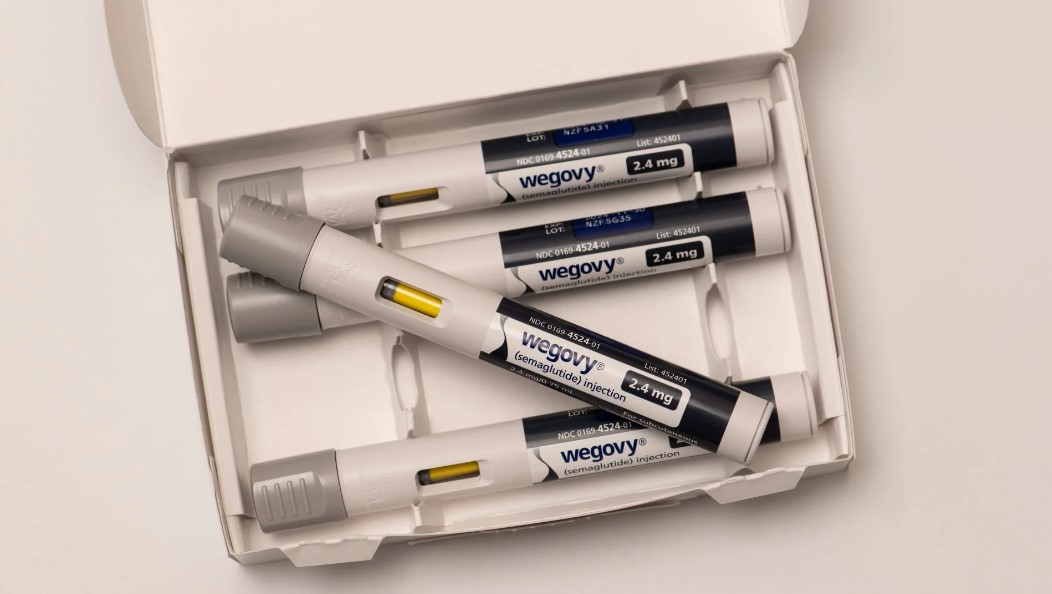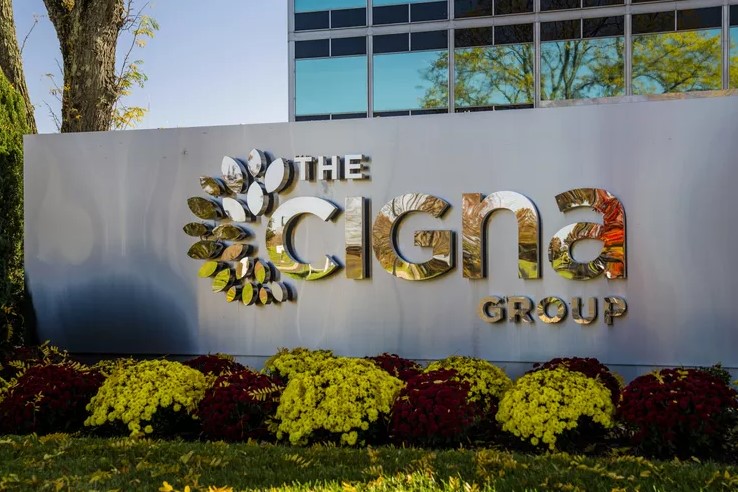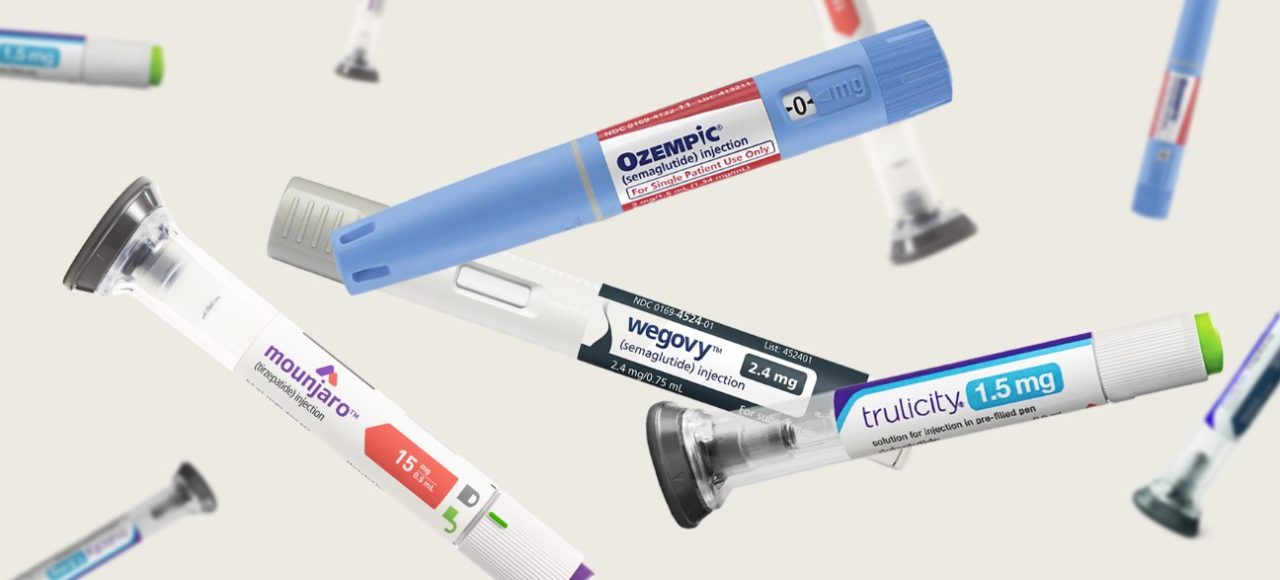In the U.S., Wegovy isn’t just limited to weight loss anymore.
The blockbuster drug, which has seen a surge in popularity over the past year along with a few other weight loss treatments, has now received approval in the U.S. for improving heart health as well.
However, this expanded approval might not immediately lead to broader insurance coverage for the weekly injection from Novo Nordisk and similar treatments for obesity.
Some employers and health plans remain hesitant to cover Wegovy, citing its hefty monthly price tag of $1,350, which they fear could strain their budgets significantly. Additionally, they have concerns regarding the duration for which patients remain on the treatment.
Despite this, some experts in the insurance industry told CNBC that certain plans will take note of Wegovy’s new approval and begin considering whether to include the treatment in their coverage when they next update their formularies.
This could result in challenging decisions for insurers and create a fragmented system of coverage for Americans seeking treatment.
John Crable, senior vice president of Corporate Synergies, a national insurance and employee benefits brokerage and consultancy, expressed his view, saying, “The more benefits that come from weight loss drugs.”
“I think the greater the pressure is going to be to start including those drugs in a formulary and cover them in standard insurance plans. But my gut tells me it’s going to take more to convince some insurers,” he added.

Wegovy belongs to a class of drugs called GLP-1s, which mimic a hormone produced in the gut to suppress appetite and regulate blood sugar. However, coverage for these treatments for weight loss varies.
According to a spokesperson for Novo Nordisk, roughly 110 million American adults live with obesity, with approximately 50 million having insurance coverage for weight loss drugs.
The company is actively working with private insurers and employers to advocate for broader coverage of these drugs and is also pushing for Medicare to start covering them.
The Centers for Medicare and Medicaid Services (CMS) are currently reviewing the FDA’s expanded approval of Wegovy and will provide additional information as appropriate, according to an agency spokesperson.
It’s worth noting that state Medicaid programs would be required to cover Wegovy for its new cardiovascular use. By law, Medicaid must cover nearly all FDA-approved medications, although weight loss treatments are among the few drugs that can be excluded from coverage.
Presently, around one in five state Medicaid programs cover GLP-1 drugs for weight loss.
While some of the largest insurers, such as Aetna, cover these treatments, many employers do not.
An October survey conducted by the International Foundation of Employee Benefit Plans (IFEBP) found that only 27% of more than 200 companies provided coverage for GLP-1s for weight loss, compared to 76% that covered these drugs for diabetes. However, 13% of employers indicated they were considering coverage for weight loss.
Downstream health effects
The Food and Drug Administration approved Wegovy for weight management in 2021. In a significant development earlier this month, the agency broadened that approval following findings that Wegovy reduces the risk of serious cardiovascular complications in adults with obesity and heart disease.

This decision stemmed from a five-year, late-stage trial, revealing that weekly injections of Wegovy lowered the overall risk of heart attack, stroke, and cardiovascular death by 20%.
The approval underscores the substantial downstream health advantages of Wegovy, and potentially similar drugs, for severe conditions resulting from excess weight. Obesity escalates the likelihood of various conditions, including diabetes, heart disease, and certain cancers.
It also challenges what some health experts deem an “outdated” narrative contributing to hesitancy among certain insurers: the notion that weight loss treatments offer only cosmetic rather than medical benefits.
“We haven’t previously seen any anti-obesity medication decrease the risk of heart attack and stroke,” stated Dr. Jaime Almandoz, a specialist in weight management and metabolism at the University of Texas Southwestern Medical Center in Dallas. “What we have is proof that treating obesity is essentially life-saving, and I think it really shifts the conversation.”
Debra Tyler’s daughter administers her new medication at home in Killingworth, Conn. Initially, she was on a successful obesity medication; however, their family insurance ceased coverage for the drug, leaving the Tylers grappling with challenging financial decisions.
Some health experts argue that covering Wegovy and other GLP-1s for weight loss could diminish a plan’s healthcare costs over time and enhance future health outcomes for patients.
Shawn Gremminger, President and CEO of the National Alliance of Healthcare Purchaser Coalitions, suggested that employers would be inclined to cover these drugs if they effectively lower long-term costs. Members of this group represent a diverse range of organizations that collectively spend over $400 billion annually on healthcare.
However, Gremminger noted that it will likely take years before employers have access to concrete data on the potential cost savings of covering these treatments.
Moreover, employers are currently less focused on the implications of covering weight loss drugs for overall healthcare spending a decade from now. Their primary focus is on providing care to their current employees, recognizing that some may leave the company in the future.
Employers also have additional queries regarding longer-term data on GLP-1s for weight loss and concerns about patients discontinuing these drugs prematurely. It remains unclear to some employers whether patients need to remain on Wegovy indefinitely or if they can eventually taper off it, according to Gremminger.
Given that obesity and heart disease are chronic conditions, most patients will likely need to continue taking Wegovy, along with adhering to diet and exercise regimens, to sustain the health benefits. Novo Nordisk stated, “not unexpectedly,” that data from their clinical trials indicates individuals who stopped taking Wegovy regained weight.
“This supports the belief that obesity is a chronic disease that requires long-term management, much like high blood pressure or high cholesterol, for which most patients remain on therapy long term in order to continue to experience the benefits of their medications,” Novo Nordisk remarked in a statement.
Nonetheless, Gremminger highlighted that the standard of care for the long-term use of weight loss drugs is still evolving.
Considering the costs
Confronted with the staggering expense of covering Wegovy and similar medications, the state of North Carolina is taking measures to cut back.
Beginning next month, state employees will no longer receive insurance coverage for GLP-1s when used for weight loss.

In January, the board of trustees for the state’s health plan voted to exclude these drugs from coverage. However, the plan will continue to cover GLP-1s for diabetes, such as Novo Nordisk’s Ozempic, alongside some older obesity medications.
North Carolina’s treasurer and GOP candidate for governor, Dale Folwell, explained to CNBC that the recent expanded approval of Wegovy doesn’t alter their stance.
“We’ve never questioned the efficacy of the drug. We’ve always questioned what we’re having to pay for it,” Folwell remarked. “Even as the scope of the use of this drug widens, it doesn’t change the cost.”
Dropping weight loss drugs wasn’t a decision the board took lightly, Folwell emphasized. However, it was deemed necessary as the state’s plan is facing significant financial strain due to Wegovy.
According to a state presentation from January, Wegovy cost the state’s health plan nearly $87 million last year. Overall, GLP-1 drugs for weight loss accounted for roughly $102 million in costs in 2023.
An outside consultant projected a staggering $1.5 billion loss by 2030 if the state plan continued covering these treatments.
Moreover, North Carolina estimated that continuing coverage for GLP-1s for weight loss would result in doubling premiums for all 482,000 active employees and dependents on the plan, even those not using the drugs.
Folwell disclosed that the state has been in discussions with Novo Nordisk and Eli Lilly, the maker of a similar treatment called Zepbound, to negotiate costs. However, he noted that the companies have consistently rejected the state’s proposals.
A spokesperson for Eli Lilly stated that the company is committed to collaborating with healthcare, government, and industry partners to facilitate access to Zepbound for those who may benefit from it, but acknowledged that obstacles to this goal still exist.
The spokesperson added that insurance policies have yet to catch up with scientific advancements.
Novo Nordisk, in a statement, urged Folwell and the state health plan to prioritize patients and reconsider the decision to eliminate coverage for weight loss drugs. The company emphasized that denying insurance coverage for essential and effective FDA-approved treatments for obesity is irresponsible.
Both drugmakers have launched programs to assist patients, whether or not they have commercial insurance coverage, in affording their weight loss treatments.
Novo Nordisk’s savings program, for instance, can help uninsured patients save up to $500 per 28-day supply of Wegovy. Additionally, the company noted that roughly 80% of Wegovy patients in the U.S. with commercial coverage for the drug pay $25 per month or less.
With increased competition in the weight loss drug market, the two companies may face pressure to reduce the costs of their injectable treatments, observed Ceci Connolly, CEO of the Alliance of Community Health Plans.
She noted that health plans may also be more inclined to cover convenient and potentially cheaper oral versions of the drugs, although these alternatives are likely still years away. This includes generic versions of existing GLP-1s, as well as treatments from rival drugmakers.
Coverage with Cost Controls
Julie Stich, Vice President of Content at IFEBP, anticipates that more employers will consider covering Wegovy following its expanded approval.

However, plans opting to include Wegovy in their formularies during the next update will likely introduce specific requirements to manage costs, tailored to Wegovy’s two approved uses.
According to IFEBP’s October survey, most employers already implementing cost controls cover GLP-1s for weight loss. About a third utilize “step therapy,” necessitating members to attempt other lower-cost medications or weight loss methods before resorting to a GLP-1.
Additionally, around 16% of employers enforce eligibility rules, such as requiring employees to meet a certain BMI threshold for coverage.
Financial requirements like annual or lifetime spending caps for treatments are also prevalent. For instance, the Mayo Clinic’s employee health plan introduced a lifetime coverage limit of $20,000 for weight loss drug prescriptions filled after Jan. 1.
In response to rising costs, some players in the insurance industry are exploring strategies to help health plans manage coverage expenses. Last week, Cigna’s pharmacy benefits management unit announced it would cap spending increases for GLP-1s at a maximum of 15% annually for employers and other health plans.
Currently, some of the company’s clients are experiencing annual spending hikes of 40% to 50% for these treatments.
Should more healthcare companies adopt similar initiatives, affiliated health plans may become more inclined to cover weight loss drugs, given the assurance of limited risk through cost containment measures, Stich explained.